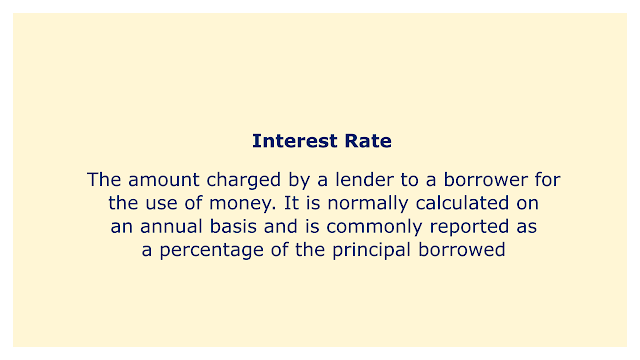 |
| Image: Moneybestpal.com |
Interest rate refers to the amount charged by a lender to a borrower for the use of money. It is normally calculated on an annual basis and is commonly reported as a percentage of the principal borrowed. The financial system's primary factor, interest rates have a big impact on many different elements of the economy.
A multitude of variables, including the supply and demand for credit, inflation, and monetary policy, affect interest rates. As part of its monetary policy, central banks are often in charge of determining interest rates. The central bank may alter interest rates in order to curb inflation, foster economic expansion, or maintain the stability of the financial system.
Depending on the sort of loan or investment, interest rates can differ greatly. In comparison to credit cards and personal loans, mortgages, and auto loans often have lower interest rates. Likewise, depending on the risk and return characteristics of the investment, investments like bonds and savings accounts may give higher or lower interest rates.
The economy as a whole, lenders, investors, and borrowers can all be significantly impacted by changes in interest rates. Reduced interest rates, for instance, may increase investment and borrowing, which may boost economic expansion. On the other hand, higher interest rates may deter investors and lenders, slowing the economy while possibly assisting in keeping inflation under control. Thus, it's critical for everyone—including consumers, companies, and policymakers—to pay close attention to and comprehend interest rate changes.
